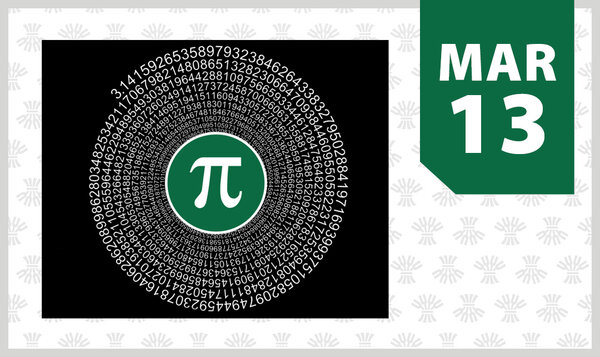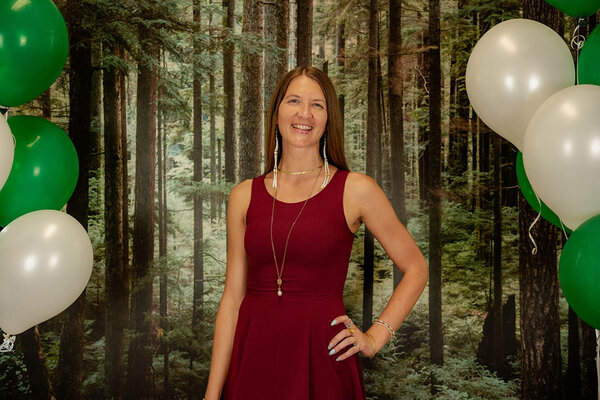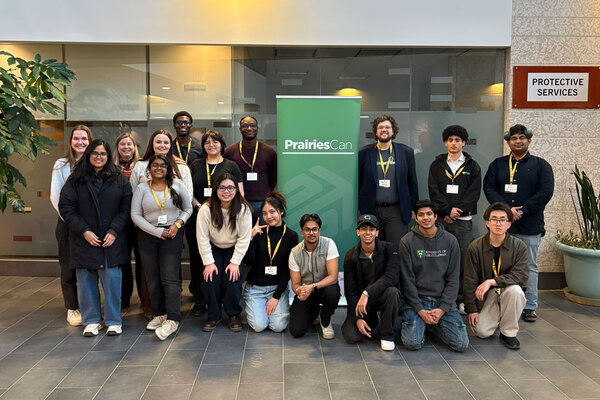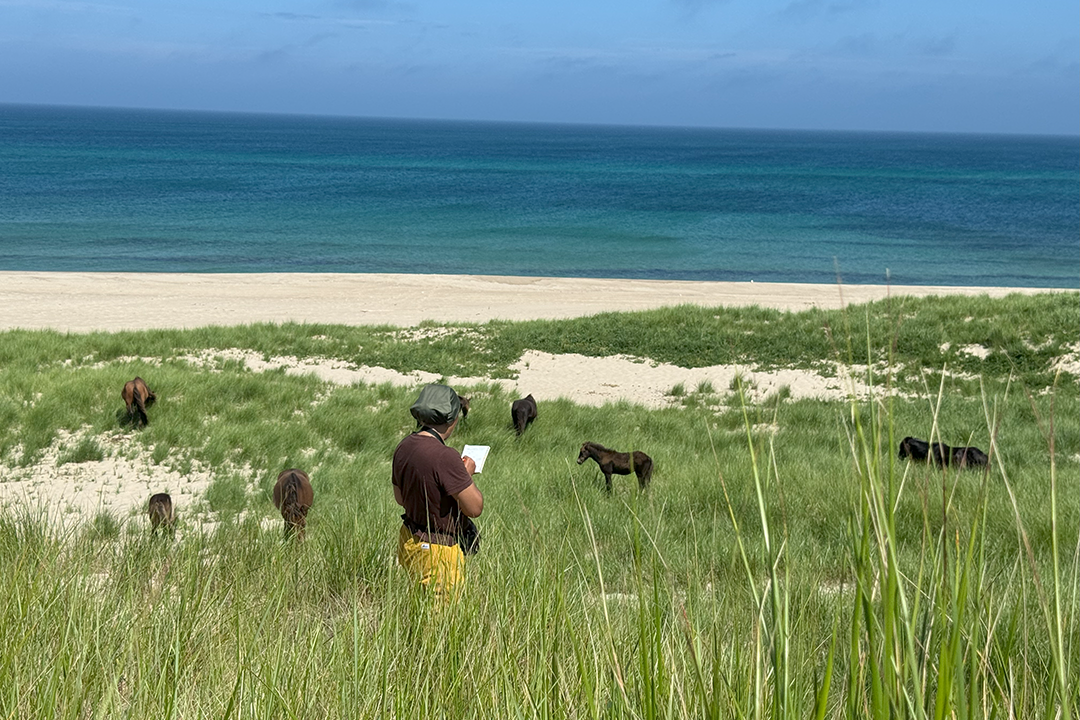
Indigenous USask student spends summer research project with wild horses
Summer research experience helped Arts and Science undergraduate student overcome imposter syndrome
By Kristen McEwen
Indigenous student Olivia Andres spent a month this summer picking up after wild horses in Nova Scotia.
“In less glamourous terms, it was just chasing horses for poop for a month,” Andres said. “It was a good time though, and super cool to get to do that.”
Andres is in her fifth year at the University of Saskatchewan (USask). She is a registered member of Sweetgrass First Nation. She was raised in Saskatoon and also has familial ties to Birch Narrows Dene Nation.
She recently declared her major in Biology, and a minor in Indigenous Studies in the College of Arts and Science. This was the second summer in a row Andres participated in remote fieldwork to assist in research as an undergraduate student.
Andres gathered fecal samples for her supervisor biology associate professor Dr. Philip McLoughlin (PhD) on Sabel Island National Park Reserve in Nova Scotia. The research project involved looking at parasites and microbiomes within the herd of horses, as well as nutritional balance and stress hormones.
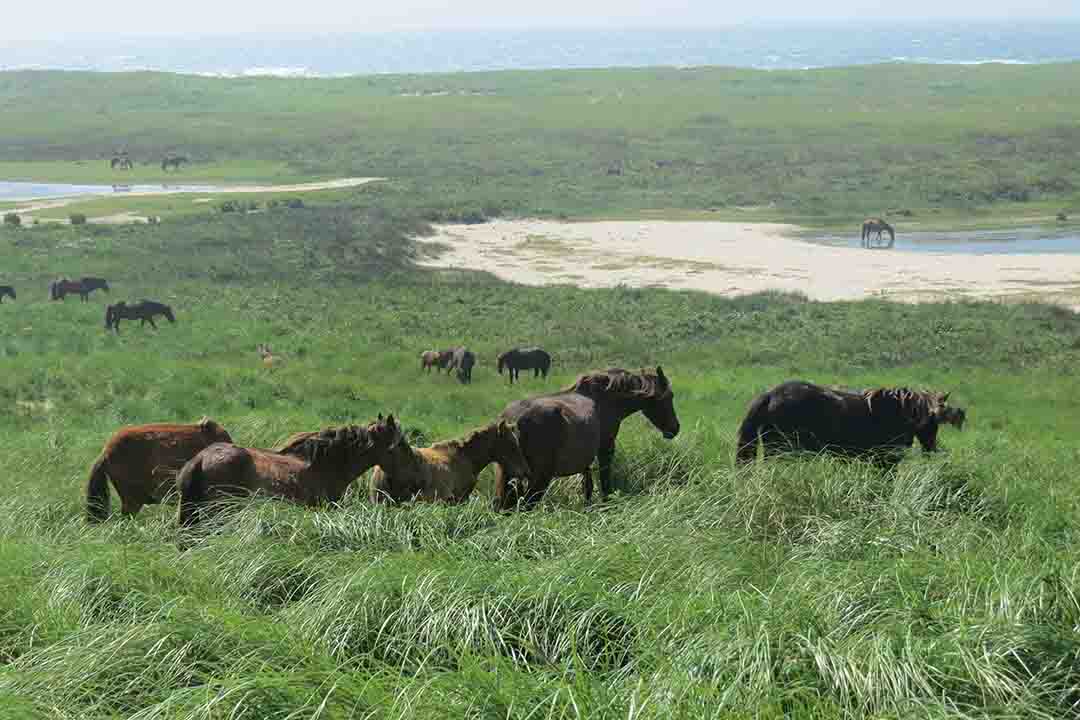
She also was required to take identifying photos of the horses while collecting samples. In the evenings, the team would go back to their home lab on the island to process the samples.
Sable Island is about 40 kilometres long—only about one kilometre at its widest point—and home to about 450 wild horses. The island is managed by Parks Canada, which grants permission for visits by tourists and researchers during the year.
While she hadn’t considered herself to be “academically inclined,” Andres noted that she enjoyed working remotely in the field.
She credits Indigenous Student Achievement Pathways (ISAP) team lead Dr. Sandy Bonny (PhD) with creating opportunities for research work with the McLoughlin Lab in Population Ecology.
“She said, ‘Hey Olivia, there’s a really cool research opportunity this year for Indigenous students, you should be involved,’” Andres recalled. Though she initially declined the invitation, Bonny put Andres in contact with McLoughlin to discuss the opportunity.
Andres was encouraged to apply for an Undergraduate Student Research Award (URSA) within the Natural Sciences and Engineering Research Council of Canada (NSERC). The grant helped fund her position to participate in fieldwork during the summer.
The grant also allowed Andres to participate in a second research project during the summer, which involved setting up trail cameras in remote parts of northern Saskatchewan. The second research project focused on looking at caribou interactions with deer and monitoring chronic wasting disease between the populations.
“I enjoy (research) a lot,” Andres said. “I feel like I’m building a lot of confidence and a lot of my skills and even my field work and my lab capabilities—that's super beneficial.”
She noted that there are some barriers to research that she viewed as a potential deterrent for people to not consider research as an option.
Representation—not seeing people like herself—was a big barrier to approaching research, Andres said.
“You don’t see the human behind people doing the research,” she said. “That was something where I was like, ‘(Research) that’s not for me, that’s for someone else.”
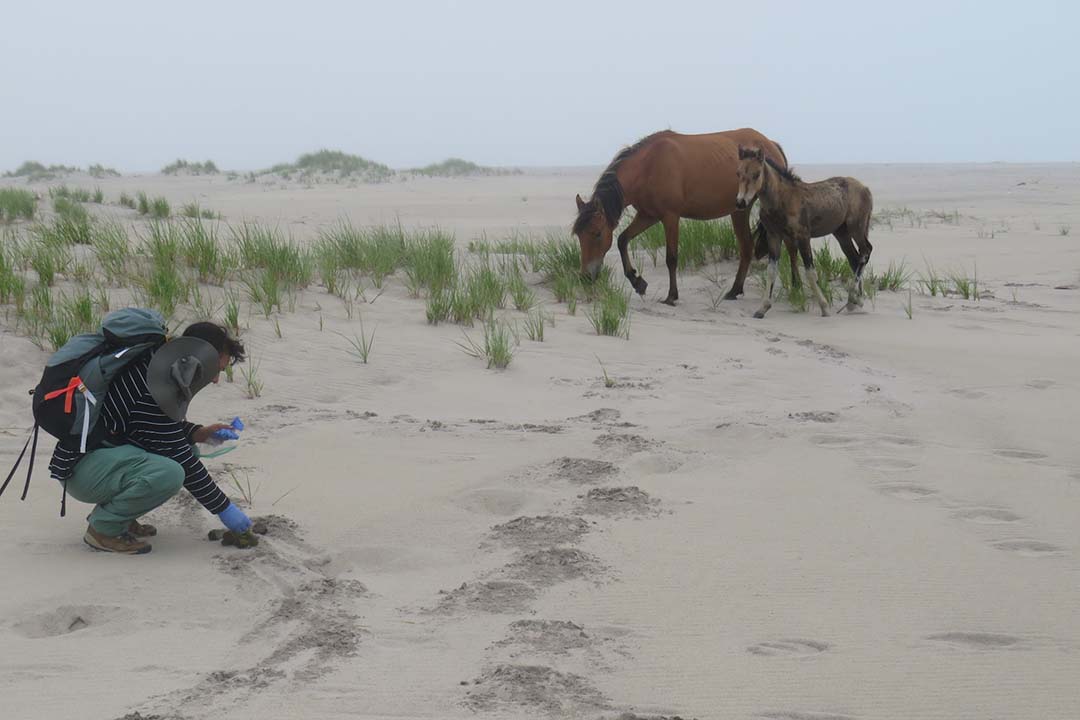
Her summer research experiences challenged Andres in another way: confronting her fears.
“I actually enjoyed travel more than I thought,” she said. “I’m a very, ‘like-to-be-in-control-type' person, and travelling is so beyond my control.”
Getting to Nova Scotia required flying from Saskatoon to Halifax, and then getting on a smaller plane to fly out to the remote Sable Island. Despite having a fear of horses, Andres enjoyed her summer research experience on the island.
“I’m thankful for getting to fight my own imposter syndrome a bit,” she said. “I went into my first year saying ... it was a fluke. I made it here.”
"Seeing how other people do research and hearing that these are skills— (participating in) fieldwork for very long days. Being able to do that with a smile on your face and a joke coming out every 10 minutes is a skill, I just never considered that for myself.”
“You bear down and work hard, but that’s a skill that I think not everyone has—so it’s making me feel better that I’m skilled in some ways.”
For Indigenous students considering research, or who have never considered participating in research, Andres shared some advice.
“If you can see (someone like me) in research, then anyone can be in research. You’ll find what you like and what you succeed at if you just keep trying stuff.
“Don’t feel confined to only (try) within your field and your specific departments and your degree path. Get out there ... try various research.”
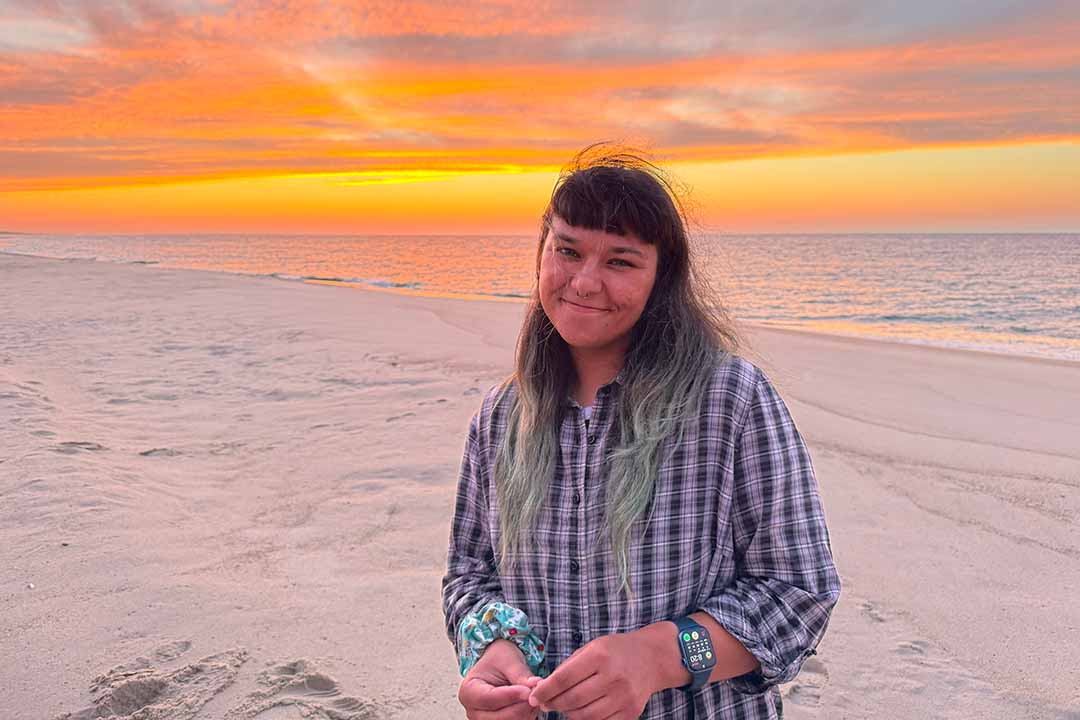
Together, we will work towards Truth and Reconciliation. We invite you to join by supporting Indigenous achievement at USask.
